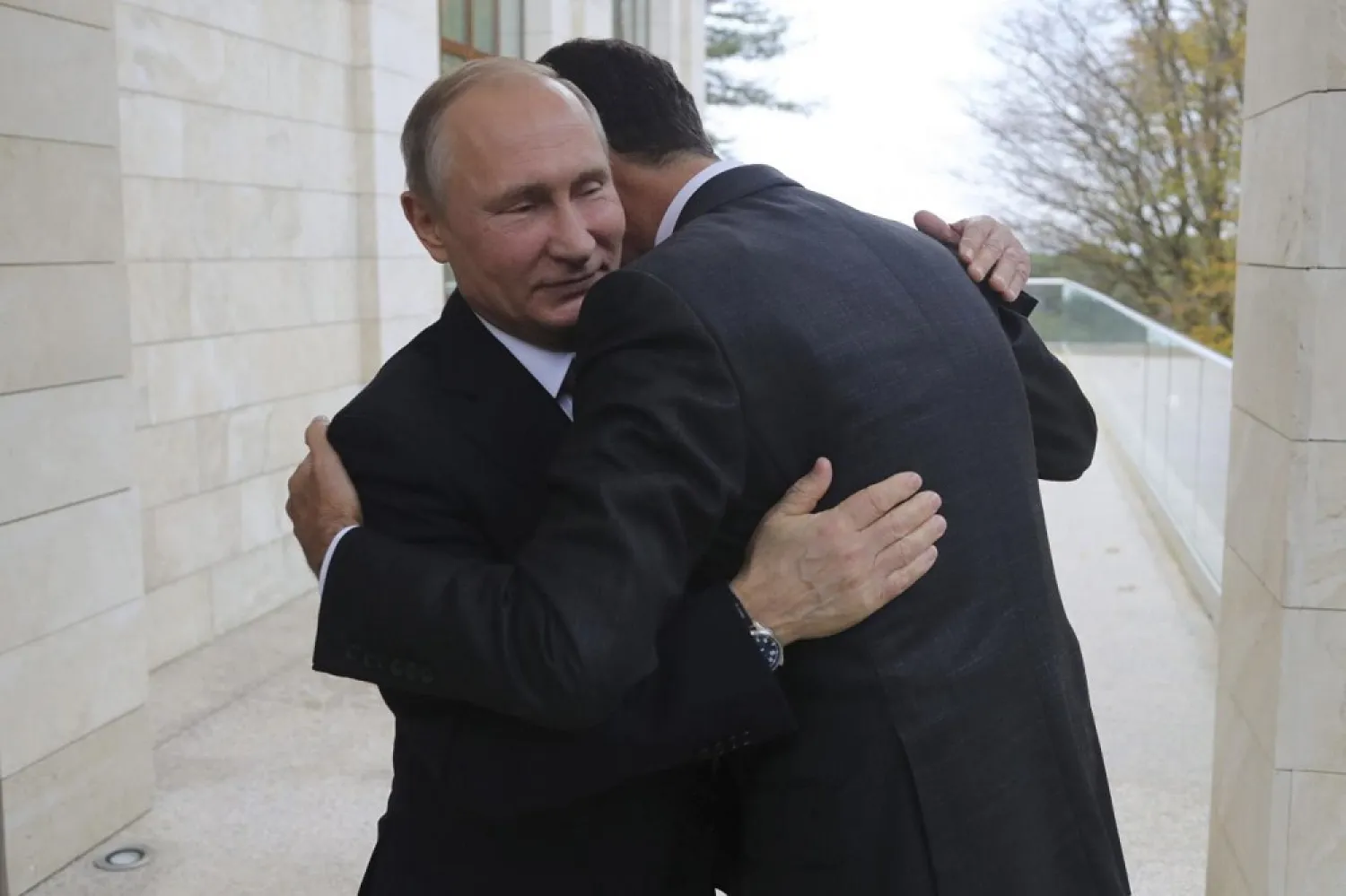The Kremlin stated that the military operation against terrorism in Syria was on the verge of ending and therefore it is time to launch the political settlement for the crisis.
The settlement should be overseen by the United Nations and regional and international powers that are in one way or another involved in the conflict and that Russia should be credited with creating the conditions for the settlement.
These are the stances that were stressed by Russian President Vladimir Putin during talks he held on Monday with his Syrian counterpart Bashar Assad in the Russian city of Sochi.
Putin underscored at the start of the talks that the terrorism in Syria was reaching its inevitable demise, stressing that attention should now be directed towards the long-term political settlement.
He then listed the parties that will be involved in this settlement. Putin will meet in Sochi later on Wednesday with Turkish President Recep Tayyip Erdogan and Iranian President Hassan Rouhani to discuss the settlement. Other countries that Russia is in contact with over Syria are Jordan, Saudi Arabia, the United States, Iraq and Egypt.
Putin is also expected to later contact the Emir of Qatar, US President Donald Trump and, later, regional leaders.
His talks will focus on the main principles of the political process and holding the Syrian dialogue congress. He also highlighted the role the UN could play in the process, saying that it should be its sponsor and hoping that it would play an effective role in ensuring its implementation.
The Russian president acknowledged the Riyadh-hosted Syrian opposition meeting that is aimed at unifying its ranks. Putin said that Moscow has a role to play in the gathering and that he will dispatch his Syrian Affairs special envoy Alexander Lavrentiev to attend its proceedings.
For his part, Assad said: “We are concerned with forging ahead with the political process.”
He also hoped that he will receive Russian support to ensure that “no foreign players will meddle in this process.”
Furthermore, he voiced a readiness to cooperate with all the forces that want to achieve a political solution to the Syrian crisis.
“We are ready to hold dialogue with them,” he remarked.
Putin then introduced Assad to the military commanders who took part in the operations in Syria, starting with Defense Minister Sergei Shoigu and Chief of Staff Valery Gerasimov.
“I want to introduce you to the people who played a decisive role in saving Syria,” he said.
“Assad may know some of you and others he may not. He does know however, and he told me this, that it is due to Russian troops that Syria was saved as a state,” Putin stressed before the military commanders.
“I want to say that we would not have been able to achieve anything if it weren’t for the efforts of the armed forces and your efforts and those of your soldiers and their heroics,” he told Assad.
Later on Tuesday, Russian presidential spokesman Dmitry Peskov told reporters that Putin will contact Trump and Arab leaders to discuss the Syrian settlement.
He refused however to comment on Russia’s vision on what Assad’s role will be in the upcoming phase.
No one but the Syrian people will decide his fate, he added.









